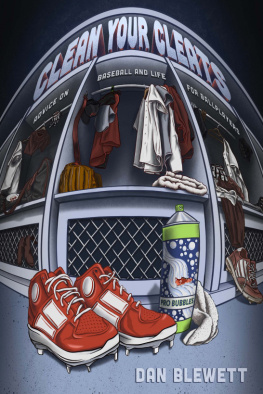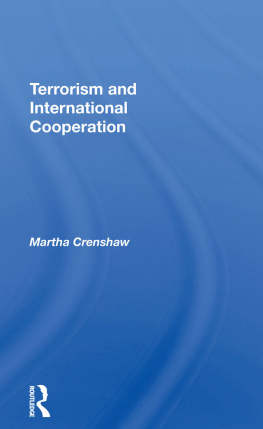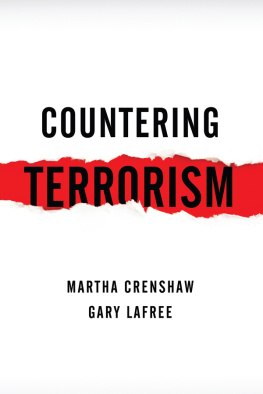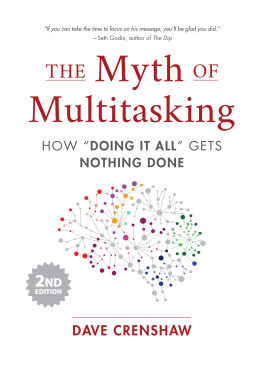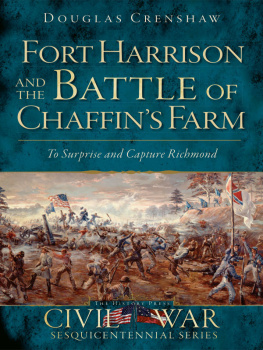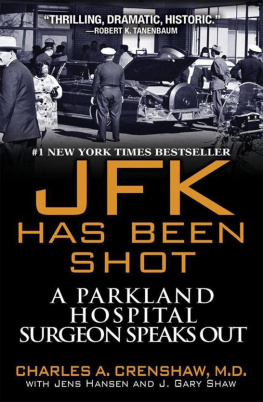The Ticket Out
Darryl Strawberry
and the Boys of Crenshaw
MICHAEL SOKOLOVE
SIMON & SCHUSTER
NEW YORK LONDON TORONTO SYDNEY

Also by Michael Sokolove
Hustle: The Myth, Life and Lies of Pete Rose

SIMON & SCHUSTER
Rockefeller Center
1230 Avenue of the Americas
New York, NY 10020
www.SimonandSchuster.com
Copyright 2004 by Michael Y. Sokolove
All rights reserved, including the right of reproduction in whole or in part in any form.
SIMON & SCHUSTER and colophon are registered trademarks of Simon & Schuster, Inc.
Portions of this book were first published in an article in The New York Times Magazine entitled An American Tragedy by Michael Sokolove, dated April 15, 2001.
For information regarding special discounts for bulk purchases, please contact Simon & Schuster Special Sales at 1-800-456-6798 or business@simonandschuster.com
Designed by Charles Kreloff
Manufactured in the United States of America
1 3 5 7 9 10 8 6 4 2
Library of Congress Cataloging-in-Publication Data
Sokolove, Michael Y.
The ticket out : Darryl Strawberry and the boys of Crenshaw / Michael Sokolove.
p. cm.
Includes bibliographical references and index. 1. Strawberry, Darryl. 2. Baseball playersUnited StatesBiography. 3. Crenshaw High School (Los Angeles, Calif.)Baseball. 4. Youth league baseballCaliforniaLos Angeles. I. Title.
GV865.S87S65 2004
796.357092dc22
[B]
2004041745
eISBN-13: 978-1-439-12904-3
ISBN-13: 978-0-743-22673-8
For my parents
Contents
Chapter 1
Paradise
Chapter 2
Go West, Then Keep On Going
Chapter 3
Crenshaw
Chapter 4
No Way We Lose
Chapter 5
Chasing Darryl
Chapter 6
Leaving L.A.
Chapter 7
Called Out on Strikes
Chapter 8
The Good Stuff
Chapter 9
Family
Authors Note
This book evolved from a profile of Darryl Strawberry that I wrote for The New York Times Magazine in 2001. Even after I had completed that story, I wanted to know more, not so much about Darryl, but about where he came from and what produced this tragic American icon. And I wanted to explore our sports obsessionAmericas; my ownthrough Darryl Strawberry and his 1979 Crenshaw High baseball team, which I knew to be a collection of amazingly talented young ballplayers.
What became of the rest of them? Were the less celebrated ones, those who werent showered with all that fame and adulation, better off in the end? For all of them, how did their lives turn out after the applause died?
This book is their story, the story of the Boys of Crenshaw. It is also the story of my own journey, a quest to get sports right in my own head.
As a boy, I was virtually inhabited by sports. It is what I did, what I thought about, who I was. If I had a baseball game to play on a spring afternoon, I sat in class all day long staring out the window and up at the skyon high alert against some rain cloud that might float into the picture and wash out my game. In the winter, my friends and I shoveled snow off the outdoor basketball courts and played in gloves. We could think of nothing better to do. I still think there was nothing better to do.
When we werent playing sports, we were watching it, endlessly: back-to-back college football games on Saturday afternoons, with a dose of Wide World of Sports and frequent breaks to burst outside and reenact what we had just seen.
I gobbled up the sports pages and read the stories as little morality plays. The players who worked the hardest reaped the rewards. Sports, for sure, rewarded character. It built character. This is what we were told, and what we were eager to believe.
The sports pages, then and now, included a kind of separate story line for black athletes. Sports for them was redemptive. It was a savior, the way out of a bad situation. All of this buttressed a powerful myth, sports as salvation, perhaps the only salvation.
Plenty of black athletes bought into this, or just played along, testifying in print that without sports they would surely be on the streets, maybe in jail, perhaps dead.
I wanted to get beyond the myths that we so comfortably embrace, beyond this well-worn narrative. Sports does, indeed, uplift. But it also distracts, disappoints, and holds out false hope.
I was, briefly, what one might call a real sportswriter, a beat writer who covered a big-league baseball team for one season. I carry a lot of memories from that year, most of them sweet ones, foremost among them the pure pleasure of sitting in the ballparks of the National League night after night and taking in more than 150 baseball games.
But I also saw things that made me wonder if sports really built character, or attacked it like some insidious virus.
I have written about many other subjects besides sports: life in inner-city America; a presidential campaign; the Internet stock bubble; eco-terrorism. But I keep coming back to sports, dipping in and out, trying to find the good, trying to reconcile what I see through my adult eyes with what I believed as a boy.
This book, for me, is a way to go back to the beginning. I wanted to recapture baseball as this group of boys experienced it: fresh, and full of possibility. And I wanted to know them as they are now, to learn how it all came out.
Prologue
On a warm afternoon in the spring of 1979, fifteen boys knelt in a semicircle on a baseball diamond that had been picked clean of pebbles, then obsessively raked and dragged to minimize bad hops. The grass had been watered and nurtured to a green lushness. Four hundred feet away in dead center field, and 315 feet down the lines, a high chain-link fence served both to define the outfield boundaries and to wall off school property from the streets of Los Angeles.
This was the beginning of a new baseball season at Crenshaw High School, and the boys wanted, immediately, to have bats in their hands. They wanted to take their mighty cuts, to run under fly balls, to make bullet throws and hear the fine splat of baseballs smacking into freshly oiled leather. They had groomed this field themselves, made it the finest damned diamond in all of inner-city L.A., and they were ready to play on it.
Brooks Hurst, the streetwise white man at the center of this black semicircle, pointed toward the gates in the outfield fences, which were locked against girlfriends, buddies, cousins, gang members, and all other forms of distraction and disorder. This is our world, he told them. Our turf. Just us and baseball.
Menace and temptation outside the gates could destroy this team for sure, but a powerful, countervailing influence bound these boys and carried them onto the Crenshaw High diamond: The neighborhood had baseball in its blood. It had fathers and grandfathers who had played the game on rock-filled fields and parched pastures in the rural South, and in some cases were still playing it on the L.A. sandlots. The boys had grown up with a notion that baseball could somehow set things righta vague, unexpressed but persistent hope that even if life was rigged, baseball might be fair.
Thedo Jones, the father of a Crenshaw player, had moved from Marshall, Texas, on the Louisiana border, to Los Angeles, specifically to be where Major League Baseball was playedin the city of the Dodgers, the franchise that had employed the great Jackie Robinson. Mr. Jones was among that generation of black men you saw wherever the Dodgers playedquiet men in Dodgers caps who nursed a beer, kept a scorecard, and stayed locked in silent, prayerful homage to the team that had broken baseballs color line in its Brooklyn incarnation. Thedo had four boys, and from the time they were little, his way of greeting any of their friends who walked into his living room was to clear away the furniture, hand them a bat, and say, Let me see your swing, boy.


